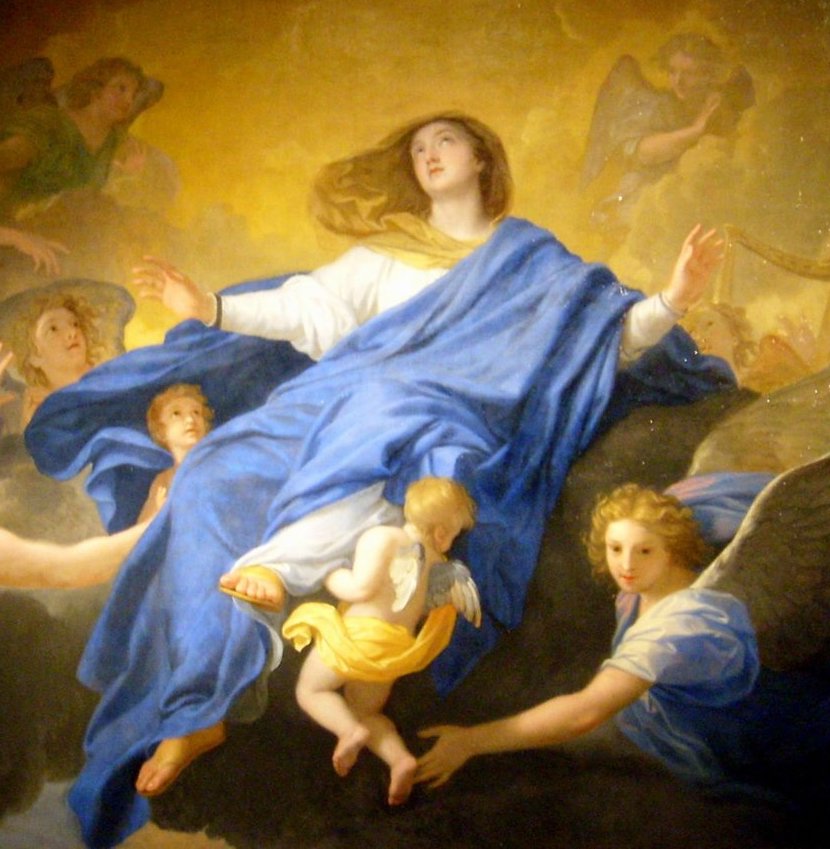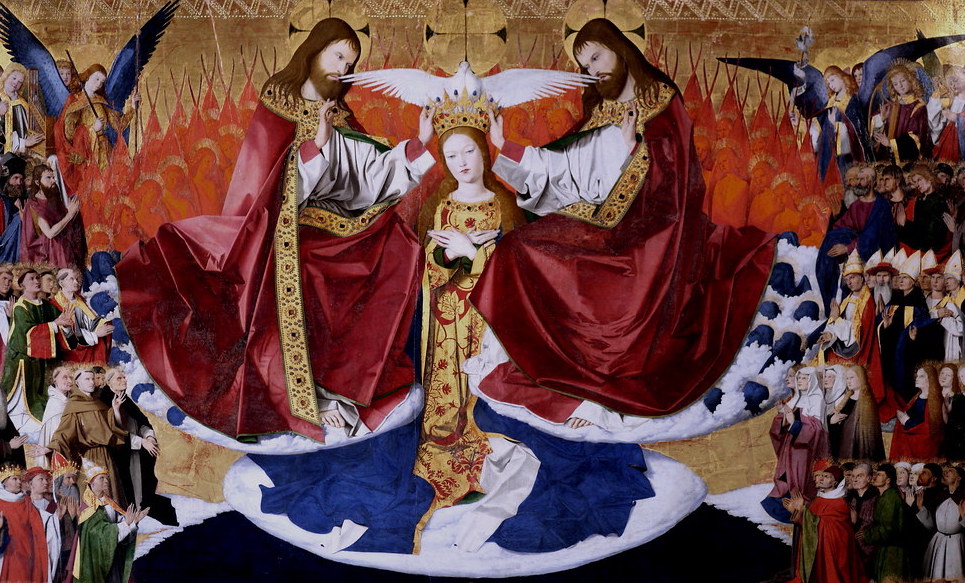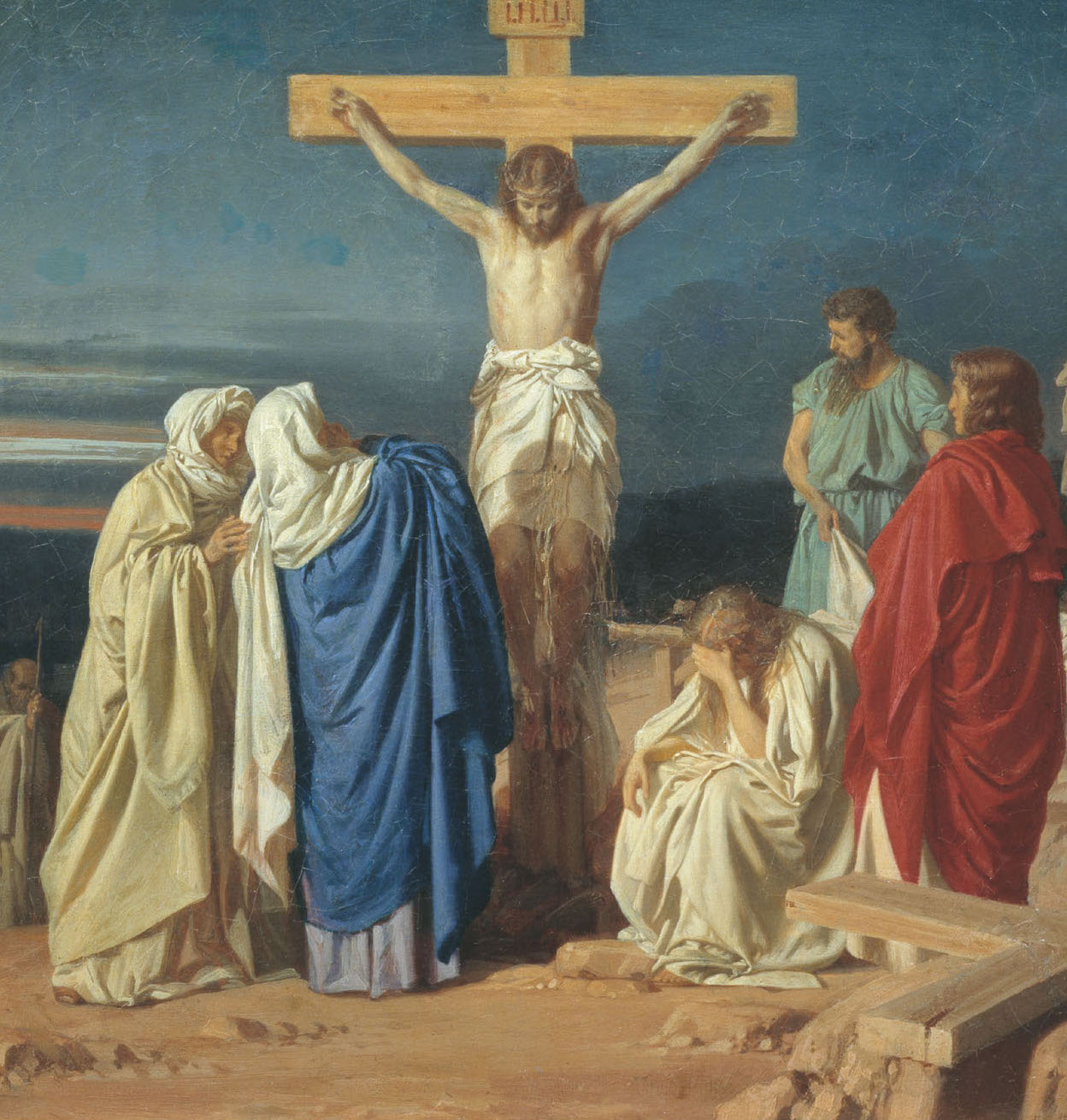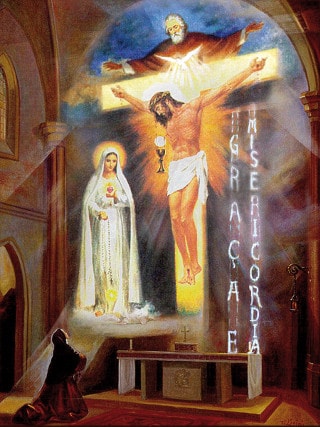August, month of the Assumption. The meditation on this eighth first Saturday of the Jubilee will therefore focus on this wonderful mystery. Let’s begin by contemplating Our Lady in the final moments of her life. Ever since Pentecost, she has been craving to be reunited with her Son. But as usual, she will live this final separation in the inner peace of her last “Fiat”. She will use this time to strengthen the Apostles and the new Church entrusted to her, while preparing her own soul.
And now his last hour has come. Her peace and joy increase. She knows she will at last see her Son again in the Father’s presence. The apostles are around her, praying, but not without a certain fear of seeing their Mother, the pillar of the Church, go. Having experienced the departure of their Master and Lord, they were enlivened by the Holy Spirit at Pentecost. But Mary’s departure made them orphans. From now on, the Church on earth will be entrusted to them. Their mission awaits them. The Blessed Virgin looked at them with ineffable gentleness and made them understand that, from Heaven, she would watch over them and the Church. A great Benedictine preacher, Dom Guéranger, describes the scene thus:

“There is no solemnity that breathes the same spirit as this one. triumph and peaceBut in our souls, so suddenly lifted from the depths of the abyss, the triumph was no less than the day when the Lord rose from the grave by his own virtue to strike down hell. Certainly, the triumph was no less on the day when the Lord, rising from the tomb by his own virtue, struck down hell; but in our souls, so suddenly drawn from the abyss of pain on the day after Golgotha, the suddenness of the victory mingled a kind of stupor (Mark 16:5) with the joy of this greatest of days. In Mary’s death, there was no impression other than one of peace; there was no cause other than love.
In this peace, after a last Motherly glance towards the Apostles, raising her eyes to Heaven, she peacefully hands her soul over to God and, in great silence, disappears from sight. The rest of the Assumption takes place in Heaven. The Son welcomes his Mother. Their mission on earth accomplished, they finally meet again for eternity. Oh, how our sweet Jesus must have waited for this moment! And how much He had to prepare for it! ” To lead you to Heaven, O Mother of God, it was the King of Heaven himself with all his court, it was your divine Son who came to fetch you with the army of angels,” says Saint Rupert. Saint Anselm (Doctor of the Church 1033 – 1109), explains that the Redeemer wanted to ascend to Heaven before His Mother, not only to prepare a throne worthy of Her in His royal palace, but also to make Her entry into Heaven more triumphant and glorious, by receiving Her Himself with all the angels and blessed of Paradise. Here is his description of the Assumption:
Accompanied by several myriads, or rather countless choirs of angels, he rushed to meet this august Virgin, who was rising from the earth; he took her to the highest heaven, and seated her on a throne of honor, from which she was to rule eternally with him over all creatures. Since that moment, has there ever been a more solemn reception, a more sublime exaltation? This day of triumph and supreme happiness for you, our sweet Queen, is a subject of continual rejoicing and admiration for all centuries; for today, not only are you showered with incomparable glory, but Heaven itself with all it contains is adorned with new glory by your presence, which increases its splendor beyond all thought and expression.”
Did we notice that three times the Heart of Mary was separated and then reunited with the Heart of Jesus? The first time was in the temple. A joyful mystery. Then came the sorrowful mysteries and the separation through Jesus’ death on the Cross, which pierced Mary’s Heart. Then come the Glorious Mysteries. The Risen Christ is reunited with his Mother. Finally, the third and last separation, the Ascension, followed by the eternal union that takes place on the feast of the Assumption.
These “separations/unions” of the Hearts of Jesus and Mary, which punctuate the three series of Rosary Mysteries, are a lesson for our spiritual life. Indeed, on earth, our progress towards God is made through a succession of moments of “desolation”, a kind of separation where we feel an emptiness or even an apparent absence of God, followed by moments of “consolation”, true reunions with Him, where we strongly feel His presence and love in our soul. The great saints are no exception. Saint Therese of the Infant Jesus had a trial of terrible desolation for an entire year. This was the famous “night” of Saint Therese.
Why these variations, also known as “spiritual breathing”? Because God wants to raise our souls as high as possible on earth, so that when we die we’ll be as close to Him as possible, and thus deserve a more perfect place with Him for all eternity. To achieve this, we need to have the greatest possible faith here on earth, i.e. we need to believe in Him without seeing Him with our eyes, but also without seeing Him with our human feelings. These are the words of Christ to Saint Thomas. “Blessed are those who believe without having seen. But to sustain us on this difficult path, He grants us periods of rest where we can see Him with our hearts and regain strength in this sensitive inner happiness. Let us be guided by Him, without worrying when He hides from us.
Let’s remember that Christ passed through this place and suffered the greatest of all desolations: that of the Garden of Olives. What an example for us! And at the moment of his death, another supreme desolation: “My God, my God, why have you forsaken me? A cry of distress, but also of absolute faith in perfect obedience. Our Lady also went through this demanding process on Holy Saturday. Despite the unbearable reality of her Son’s death, despite appalling desolation, she continued to believe, alone. This Holy Saturday, Mary’s real “olive garden”, was followed by the immense consolation of the Resurrection.
Yes, Christ and the Blessed Virgin show us that the true spiritual life is not based on a search for sentimental well-being, which is nothing other than an illusion of faith, but on the contrary on this magnificent inner struggle to believe without seeing and accept His will without necessarily understanding it. This is where the true love of God lies, where the soul gives itself to Him without seeking a sentimental “return”, and in reality finds a much deeper and more solid inner peace. It was in this marvellous peace of total faith that Our Lady, despite this final separation from her Son, ascended to Heaven on the feast of the Assumption.
So, whatever happens, whatever happens, when we feel God’s presence less or no longer at all in our prayers or in the events of our lives, let’s not be worried. That’s when God lifts us up the most. And if doubt assails us, which is normal, let us take up the words of Saint Teresa of Avila: “ Let nothing trouble you, let nothing frighten you, everything passes, God does not change, patience obtains everything; he who possesses God lacks nothing: God alone suffices.”
Let’s turn now to the fruit of the mystery: the grace of a good death. If we pray everyHail Maryfor the hour of our death, if the grace promised by the Blessed Virgin with the first five Saturdays of the month concerns her help at our death, it’s because this moment is crucial to our salvation. It would be a mistake not to prepare for it. This is the hour of the final battle, when Satan will try for the last time to drag our soul down to hell. By that time, we probably won’t have much strength left to fight, and if we haven’t been preparing for this hour with Mary all our lives, how will we be able to stand up to hell’s onslaught?
“O Mary, You have left earth, and arrived in heaven, where You reign over all the choirs of angels, as the Church sings! We know that we miserable sinners were not worthy of having You with us in this valley of darkness; but we also know that in the midst of Your Greatness You have not forgotten us, however poor and wretched we may be. Your elevation has only served to increase your Compassion for us, children of Adam. From the height of your heavenly Throne, cast upon us now, O Mary, eyes of Mercy, have pity on us, look upon us, help us, see to what storms, to what battles we are exposed as long as we remain on earth! Obtain for us, through the sanctity of Your death, perseverance in the Grace of God, so that when we leave this life, we may unite with the blessed spirits, and sing Your praises as You deserve. So be it.” Saint Alphonsus de Liguori




